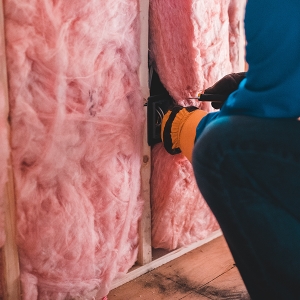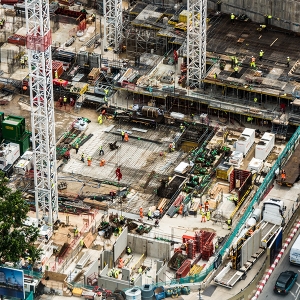Andrew Pearson
Reasons to move job
- Career advancement: If you feel like you have hit a ceiling in your current position and there are no opportunities for growth or advancement, it may be time to start looking for a new job that will provide you with the chance to further develop your skills and progress in your career.
- Dissatisfaction with current job: You may be unhappy with your current job for a variety of reasons, such as a toxic work environment, a lack of work-life balance, or not feeling valued or recognized for your contributions. If you have tried to address these issues and they have not been resolved, it may be time to move on to a job that is a better fit for you.
- Better compensation: If you feel like you are not being compensated fairly for your work, you may want to consider looking for a job that offers better pay and benefits.
- Relocation: If you need to move to a new city or state for personal reasons, you may need to find a new job in that area.
- Desire for new challenges: If you feel like you have mastered your current role and are no longer being challenged, you may want to seek out a new job that will provide you with new opportunities to learn and grow.
- Company culture: If you do not feel like you fit in with the culture of your current company or do not agree with its values or mission, you may want to consider looking for a job with a company that is a better match for you.
These are just a few of the many reasons why someone might consider moving to a new job. Ultimately, the decision to change jobs should be based on what is best for your career goals and personal well-being.
Building retrofitting
We have seen a sharp upturn in our consultancy clients seeking out retrofit surveyors, largely driven by the pursuit of net-zero. We are seeing large-scale retrofit projects embarking from housing associations on the social housing estate across our major cities.
The goal of retrofit construction is to make an existing building more sustainable, comfortable, and cost-effective to operate. This can involve adding insulation to the walls and roof to improve thermal performance, replacing inefficient windows with energy-efficient models, upgrading HVAC systems to improve air quality and reduce energy consumption, and installing renewable energy systems like solar panels or geothermal heat pumps.
Retrofit construction can be a complex and challenging process, as it often involves working with existing structures and systems that may not have been designed with modern energy efficiency standards in mind. However, it is also an important way to reduce energy consumption, lower greenhouse gas emissions, and improve the overall sustainability of our built environment.
There are several ways to retrofit a building, including:
- Insulation: Adding insulation to the walls, ceiling, and floor of a building can significantly reduce heat loss in the winter and heat gain in the summer, resulting in lower energy bills.
- Lighting: Replacing traditional lighting with LED or energy-efficient lighting can reduce energy consumption and maintenance costs.
- Heating, Ventilation, and Air Conditioning (HVAC) systems: Upgrading the HVAC system with more efficient equipment can improve the indoor air quality, reduce energy consumption, and lower operating costs.
- Windows and doors: Replacing old, drafty windows and doors with energy-efficient models can reduce heat loss in the winter and heat gain in the summer.
- Renewable energy: Installing solar panels or wind turbines can generate electricity onsite and reduce the building's reliance on grid power.
Retrofitting a building can be a cost-effective way to improve its energy efficiency and sustainability while also enhancing its value and comfort. The government is offering incentives and subsidies for building retrofits to encourage property owners and social landlords to invest in energy-saving upgrades.
London Construction market appraisal
London is one of the most vibrant and dynamic construction markets in the world. The city has a rich history of construction and engineering, with some of the most iconic buildings in the world located here, including The Shard, The Gherkin, and the London Eye.
The London construction market is diverse and multifaceted, with a broad range of projects being developed across the city. From residential and commercial buildings to major infrastructure projects like Crossrail, there are always numerous opportunities for construction companies and professionals to get involved.
One of the key drivers of the London construction market is the city's population growth. London is one of the fastest-growing cities in Europe, and it is expected to continue to grow over the coming years. This growth is driving demand for new housing, commercial space, and infrastructure, which is creating a strong pipeline of construction projects for developers and contractors. There is a particularly high demand for affordable housing in the capital, and these developments continue to go up in high numbers, regardless of market conditions.
Looking ahead to 2023 and beyond, the construction market in London is expected to continue its growth trajectory, driven by a strong demand for commercial and residential properties, infrastructure projects, and renovations. The UK government's commitment to investing in infrastructure projects, such as the HS2 high-speed rail link, is also likely to support growth in the construction industry. There are some headwinds and as of now, inflation continues to stay elevated, providing the sector's most significant obstacle. Nonetheless, the nature of price inflation is undergoing a transformation and the steep costs of materials and fuel that were prevalent in 2022 are gradually diminishing, shortages in skilled labor are now emerging as a critical concern, putting project completion at risk and pushing expenses higher.
There is an expected large increase in activity between 2025 and 2030 as the current project pipeline matures. However, it is thought the UK will need an additional 225,000 construction workers by 2027 to meet this growing demand. The consequences of this labour shortage would be substantial. Shortages tend to drive up costs, and given that labor typically constitutes 40% of project expenses, any increase in this area would significantly impact overall budgets and project feasibility. Consequently, this could lead to project delays.
In recent years, there has been a significant focus on sustainable and energy-efficient construction in London. The city has set ambitious targets for reducing carbon emissions and increasing the use of renewable energy sources, which is driving the adoption of new construction methods and materials.
Despite the opportunities, the London construction market can be challenging to navigate. The cost of construction in the city is high, and there is significant competition for projects. As such, companies looking to enter the market will need to have a strong track record of delivering high-quality projects on time and on budget.
Overall, the London construction market presents significant opportunities for those looking to work in the industry. With a diverse range of projects and a strong focus on sustainability, the city is likely to remain a key player in the global construction market for years to come.
The London construction market has been a major contributor to the UK economy, with significant growth in recent years. According to data from the Office for National Statistics (ONS), construction output in London grew by 3.3% in 2019, with an estimated value of £44.5 billion.
However, the COVID-19 pandemic has had a significant impact on the construction industry in the UK and globally, leading to project delays and cancellations, supply chain disruptions, and labour shortages. The London construction market has also been affected by these challenges.
In terms of challenges, the construction industry faces increasing pressure to adopt sustainable and eco-friendly practices, which may require significant changes to traditional construction methods and materials.
Interview tips for companies
Here are some interview tips for companies to help them conduct successful and effective interviews:
- Be clear about what you're looking for: Before you begin the interview process, make sure you have a clear understanding of the job requirements and the skills and qualities you're looking for in a candidate. This will help you assess candidates more accurately and efficiently.
- Prepare a structured interview: Develop a structured interview process that includes a set of standardized questions for all candidates. This will help you evaluate candidates consistently and fairly.
- Create a welcoming environment: Make sure the interview space is comfortable, quiet, and professional. Greet candidates warmly and make them feel at ease.
- Listen carefully: Be attentive and listen carefully to what candidates are saying. Take notes and ask follow-up questions to clarify or expand on their answers.
- Be respectful: Treat candidates with respect and professionalism, regardless of whether they're the right fit for the job or not. Provide feedback on their performance and thank them for their time.
- Test their skills: Depending on the position, consider testing candidates' skills through practical exercises or problem-solving scenarios. This will help you assess their abilities more accurately.
- Be transparent: Be transparent about the hiring process, timeline, and next steps. This will help candidates feel informed and engaged throughout the process.
- Follow up: After the interview, follow up with candidates promptly to let them know the outcome and provide feedback. This will help you maintain a positive relationship with candidates, even if they're not selected for the job.
Interview tips for Candidates
- Research the company: Before the interview, make sure you have a good understanding of the company and its products or services. Check out their website, social media accounts, and any recent news or press releases. This will help you tailor your answers to the company's values and goals.
- Practice common interview questions: Many interviewers ask similar questions, such as "What are your strengths?" and "Why do you want to work here?" Practice your answers to these questions so you feel confident and prepared.
- Dress appropriately: Dress professionally for the interview. This will show the interviewer that you take the opportunity seriously and respect the company.
- Arrive on time: Make sure you arrive on time or even a few minutes early. This will show that you are reliable and punctual.
- Bring a copy of your resume: Even if the interviewer has a copy of your resume, it's always a good idea to bring an extra copy just in case.
- Be polite and professional: Be polite and professional throughout the interview, even if you feel nervous. This includes making eye contact, speaking clearly, and avoiding negative language.
- Ask questions: At the end of the interview, the interviewer will likely ask if you have any questions. This is your chance to learn more about the company and the position. Ask thoughtful questions that show you are interested in the job.
- Follow up: After the interview, send a thank-you note or email to the interviewer. This will show that you appreciated the opportunity and are still interested in the job.






